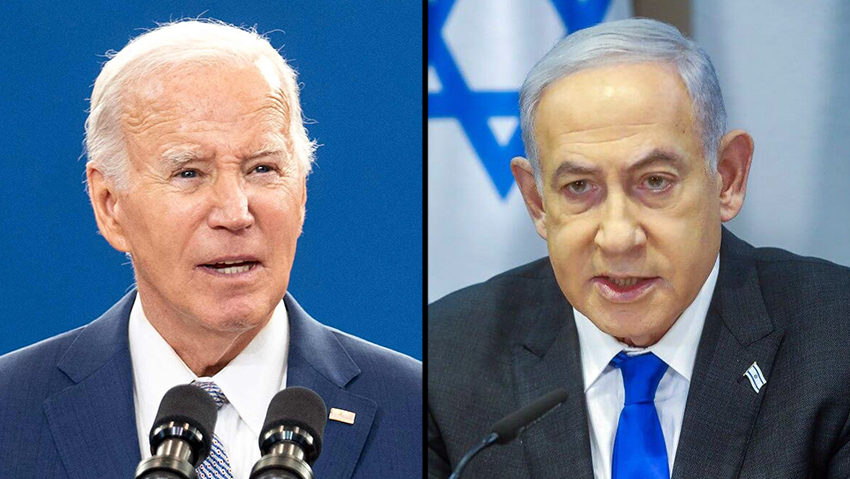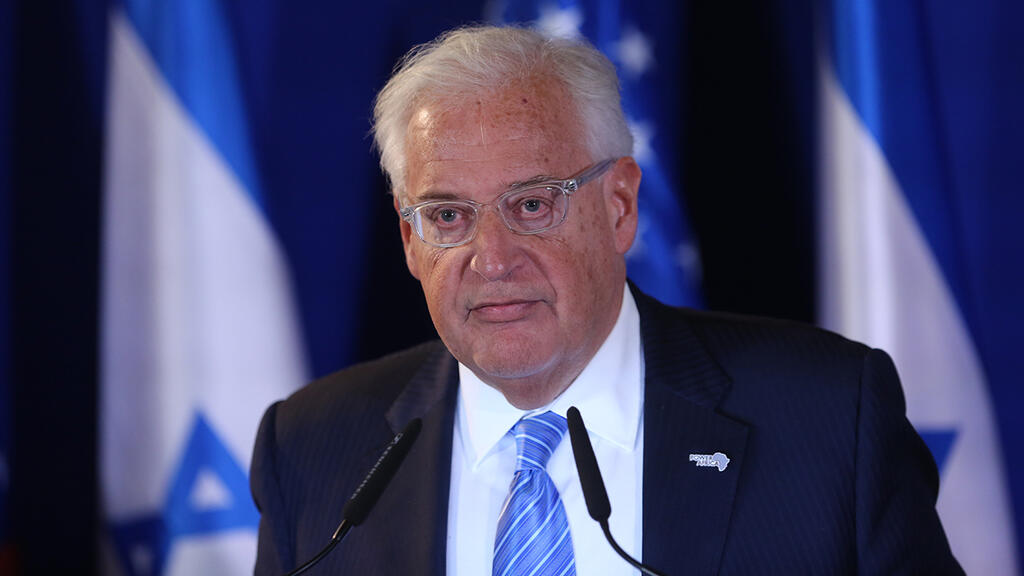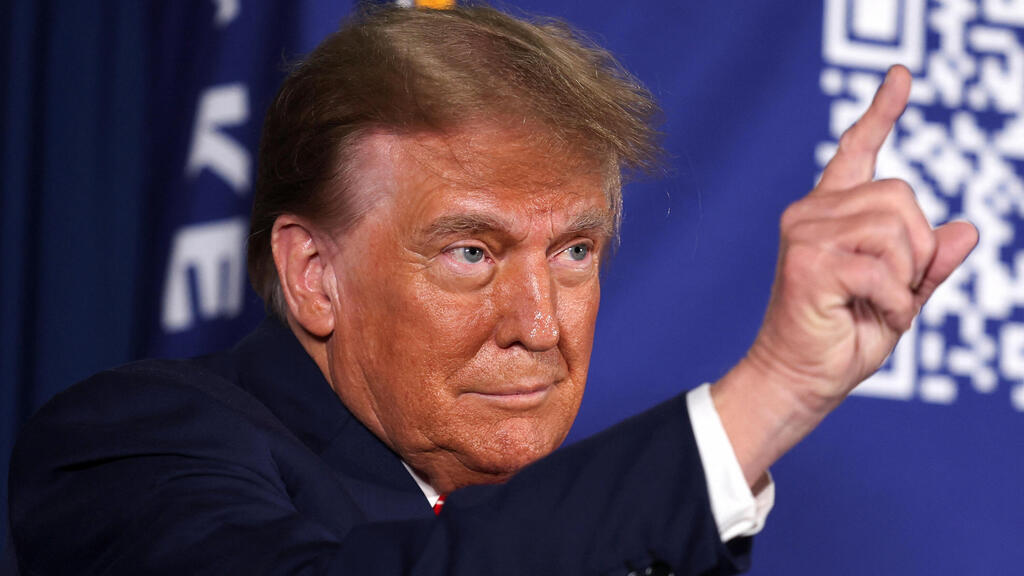Ex-US envoy David Friedman:'Biden and Democrats betrayed Israel'
(Video: Yaron Brenner)
Former U.S. ambassador to Israel David Friedman, in an interview with Ynet Studio, said that the impact of the United Nations Security Council cease-fire resolution on the Gaza war effort and the effort to return the hostages held by Hamas home are "very, very serious matters." He also called the United States' failure to veto the resolution "a betrayal of Israel, not just by Biden, but by the Democratic Party."
"I think that the fact that Ismail Haniyeh was in Tehran today celebrating the UN resolution tells you that Hamas is feeling confident. They think they can survive the war," Friedman said as part of an interview on Tuesday.
"And obviously, that makes it much more difficult to negotiate anything with them with regard to the hostages. You know, in Israel, there are those who severely criticize the Biden administration, wondering if the alliance between Israel and the U.S. is still strong. Look, it's a fair question," Friedman said.
Friedman emphasized that "this was a betrayal of Israel, not just by Biden, by the Democratic Party. I mean, it began with Bernie Sanders, and then it moved on to Chuck Schumer, and now the Biden administration as well. I mean, it's very discouraging and disappointing."
He added that "whatever differences exist with regard to Israel and America on strategy, the war is complicated and people can disagree, but they should be handled privately, especially not with the United Nations, which has never been a friend of Israel."
Friedman said that if the Gaza war ends and Hamas is not completely eradicated, then Hamas leader Yahya Sinwar, the architect of the October 7 Hamas attack, will become the leader of the terrorist world. "He becomes the hero for all the worst forces in this world. And if he sees that's a possibility, I think it emboldens him," he said.
3 View gallery


US President Joe Biden, Israeli Prime Minister Benjamin Netanyahu
(Photos: Eros Hoagland / GETTY IMAGES NORTH AMERICA / AF, Mirayam Alster)
Friedman said that the fact that the U.S. in is the throes of an election year provides an explanation of why Biden is "betraying" Israel, but says it can not be used as an excuse.
"I mean, you know, you elect people to do what's right, to lead your country, to do what's in the best interest of the country, and not to just follow what you think is the most politically advantageous path. So, yes, it's part of it. It's not all of it," he said.
He told Ynet Studio that he believes his ex-boss, former President Donald Trump, would have handled the situation differently if he was currently leading the U.S.
"I think it would have been, you know, less likely that we would have gotten to this place. Because, again, I think a lot of what enabled October 7th was an enormous amount of funding that came through Iran into Hamas, into Hezbollah, into the Houthis, into Iraqi Hezbollah," he said. "I mean, Hamas was broke. They were bankrupt when we left office. Qasem Soleimani, who was the chief architect of all their terror efforts, was killed." He added that Iran has become much more influential in recent years.
He said that the Trump administration "sent a very clear message that the United States is not going to interfere with Israel's ability to defend itself, that we trust Israel to defend its citizens in the best way that they can, in the most effective way that they can," which he believes deterred more serious Hamas attacks. Friedman added that Trump would not have pressed for a two-state solution or a cease-fire either.







